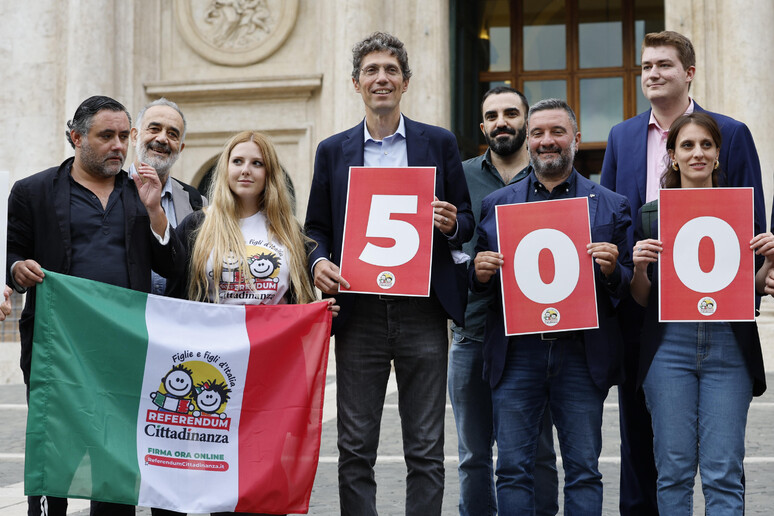A significant milestone was reached on Tuesday as the campaign for a referendum on citizenship in Italy collected over 500,000 signatures, meeting the minimum threshold required for the Constitutional Court to evaluate its admissibility. If approved, the referendum could lead to a transformative change in citizenship laws. The signature collection, which ends on September 30, saw a dramatic surge in support thanks to a robust online mobilization, overwhelming the Justice Ministry’s website, which struggled to accommodate the influx of users.
Before the proposal reaches the Constitutional Court, the signatures must be verified by the Court of Cassation, which is tasked with ensuring that each submission is correctly filled out and free from duplicates. This verification process is crucial, especially since the switch to digital signatures through the ministry’s website has streamlined the process significantly compared to previous paper-based methods. However, there is still a possibility that some signatures may be deemed invalid, prompting campaigns to aim well beyond the 500,000 mark to safeguard against this risk.
The primary objective of the proposed referendum is to reduce the legal residency requirement for citizenship applications from ten years to five. Once granted, citizenship would also be extendable to minor children, potentially impacting around 2.5 million people currently living in Italy. The initiative was initially proposed earlier this month by Riccardo Magi, a deputy from the progressive party +Europa, and has since garnered support from various other political parties and associations.
This push for reform reflects a growing demand for more inclusive citizenship policies in Italy, resonating with many who advocate for easier pathways to citizenship. As the deadline for collecting signatures approaches, the outcome of this initiative could reshape the landscape of citizenship rights in the country, highlighting the importance of public engagement in democratic processes.

